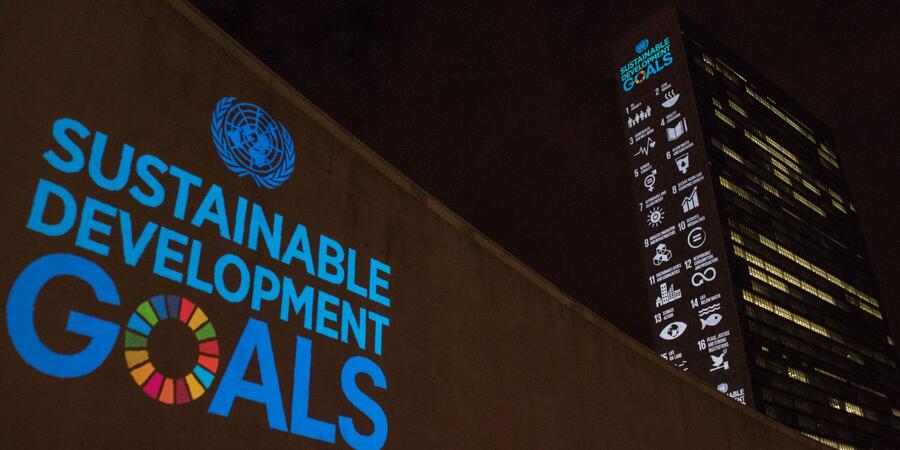
The UN Economic and Social Council (ECOSOC) is celebrating its 75th year of existence at a time the COVID-19 pandemic has spread across the globe, limiting movement, and severely impacting social and economic activity.
Born from the ashes of World War II seventy-five years ago, the United Nations was established to save future generations from the scourge of War and to achieve international co-operation in solving problems of an economic, social, cultural, or humanitarian character.
“While the Security Council exists primarily for settling conflicts […] the Economic and Social Council exists primarily to eliminate the causes of conflicts.” – Former Secretary-General Dag Hammarskjöld
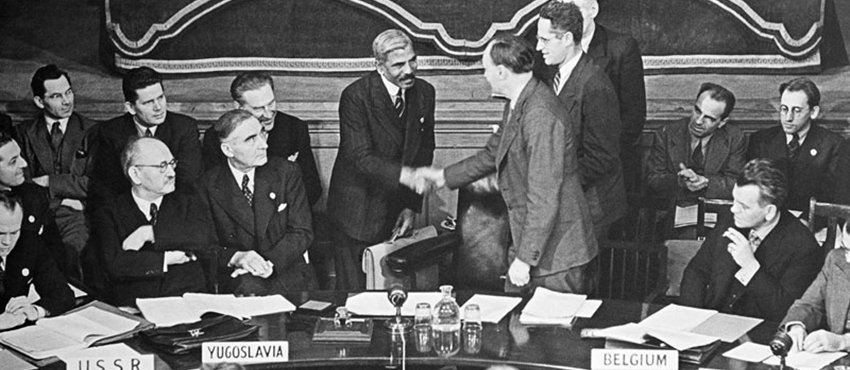
On 23 January 1946, the first meeting of ECOSOC was convened in Church House in London, England. Left in the picture, the first President of the Council Sir Ramaswami Mudaliar (India) is greeted by Mr. Gladwyn Jebb (Right), acting Secretary-General of the United Nations. (UN Photo)
To achieve this goal, one year later on 23 January 1946, ECOSOC - one of the six organs of the United Nations was established under the United Nations Charter.
ECOSOC’s Mandate and Functions
ECOSOC has the powerful mandate to promote international cooperation on economic, social and cultural issues. Specifically, it is tasked with the promotion of:
- Higher standards of living, full employment, and conditions of economic and social progress and development;
- Solutions of inter-national economic, social, health, and related problems, and international cultural and education cooperation; and
- Universal respect for, and observance of, human rights and fundamental freedoms for all without distinction as to race, sex, language or religion.
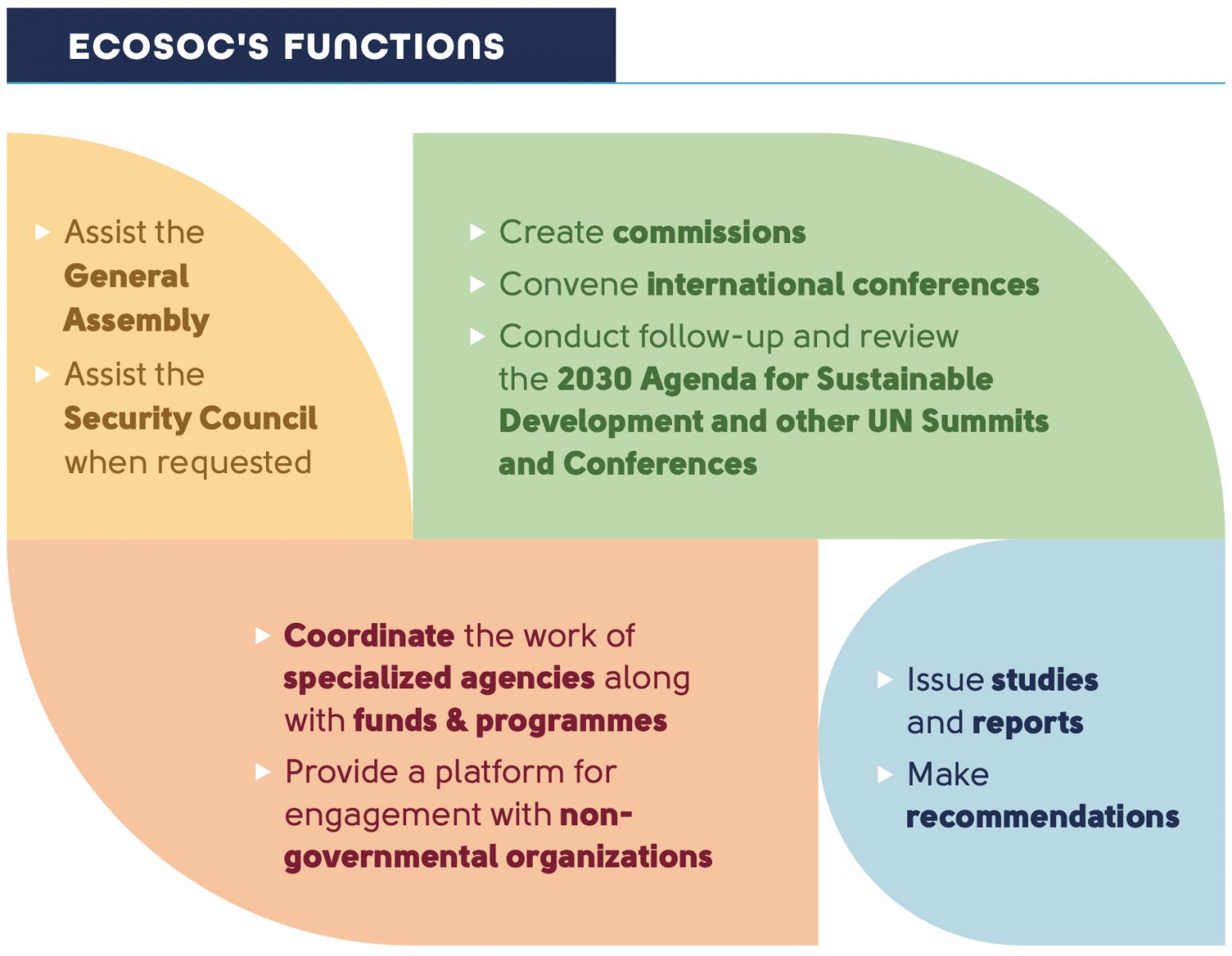
ECOSOC oversees a complex ecosystem of subsidiary bodies, composed of the United Nations regional commissions, ECOSOC functional commissions and expert bodies and related bodies. It is entrusted to guide and coordinate the work of those subsidiary bodies. It thus has an influence on a wide remit of the work of the UN in economic and social fields and on sustainable development.
The United Nations Regional Commissions are the regional outposts of the United Nations in their respective regions. Stationed in the five regions of the world, they have, among their key objectives, to promote the regional implementation of internationally agreed development goals, including the SDGs.
The Functional Commissions (composed of Governments) and the Expert Bodies (providing advice in their personal capacity) carry out the technical work of the Council. They provide policy guidance in areas such as gender equality and women’s empowerment, statistics, population, social development, crime and narcotic drugs, science and technology, and the situation of Least Developed Countries, public administration, international cooperation in tax matters, and economic, social and cultural rights. The Permanent Forum on Indigenous Issues and the United Nations Forum on Forests are also subsidiary bodies of ECOSOC.
ECOSOC has opened the door to engage with civil society. Today, there are over 5,100 non-governmental organizations which have signed up to help ECOSOC achieve its mandate. The Committee on Non-Governmental Organizations, a subsidiary body of ECOSOC, reviews NGO applications and makes recommendations on the granting of consultative status for final decision by ECOSOC.
Key Milestones
Over the past seven decades, ECOSOC has marked key successful milestones.
ECOSOC’s Impact in the past

Ms. Eleanor Roosevelt reads the Universal Declaration of Human Rights (UN Photo)
In January 1947, ECOSOC through the Commission on Human Rights, was responsible for drafting the Universal Declaration of Human Rights. On 26 August 1948, ECOSOC transmitted the draft International Declaration of Human Rights - Resolution (E/RES/151 (VII)), to the General Assembly. The official text was adopted by the General Assembly on 10 December 1948 - A/RES/217(III)A
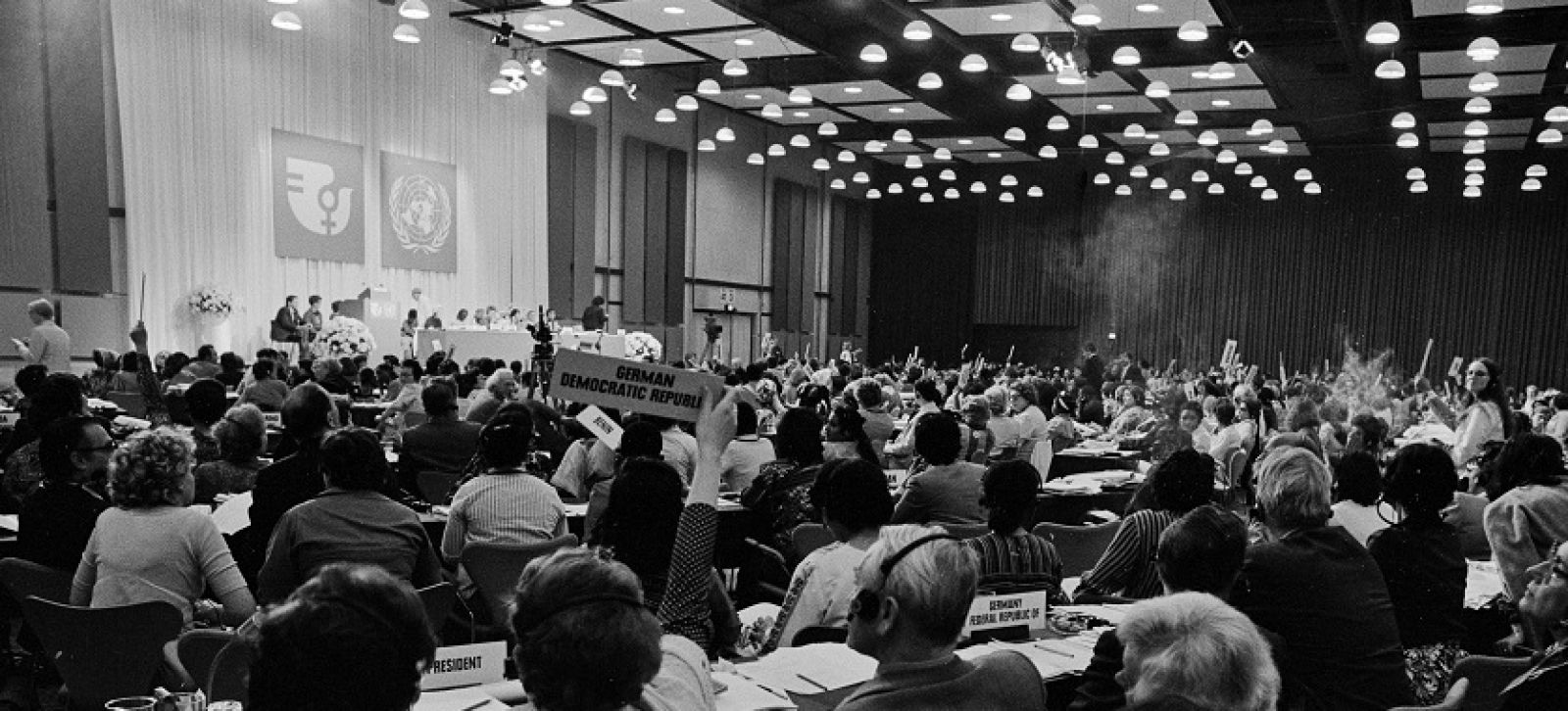
Adoption of the Convention on the Elimination of All Forms of Discrimination Against Women (CEDAW) in 1979 (UN Photo)
Empowerment of women is at the heart of ECOSOC’s agenda and on 18 December 1979, through the Commission on the Status of Women, the Convention on the Elimination of All Forms of Discrimination Against Women (CEDAW) (A/RES/34/180) was established. CEDAW defines discrimination against women as any distinction made on the basis of sex that impairs women’s equal enjoyment of fundamental rights. The convention covers measures to be taken by States to eliminate discrimination against women in various fields, including political and public life, marriage and family life. Entering into force in 1981, there are currently a total of 189 States parties to the Convention.
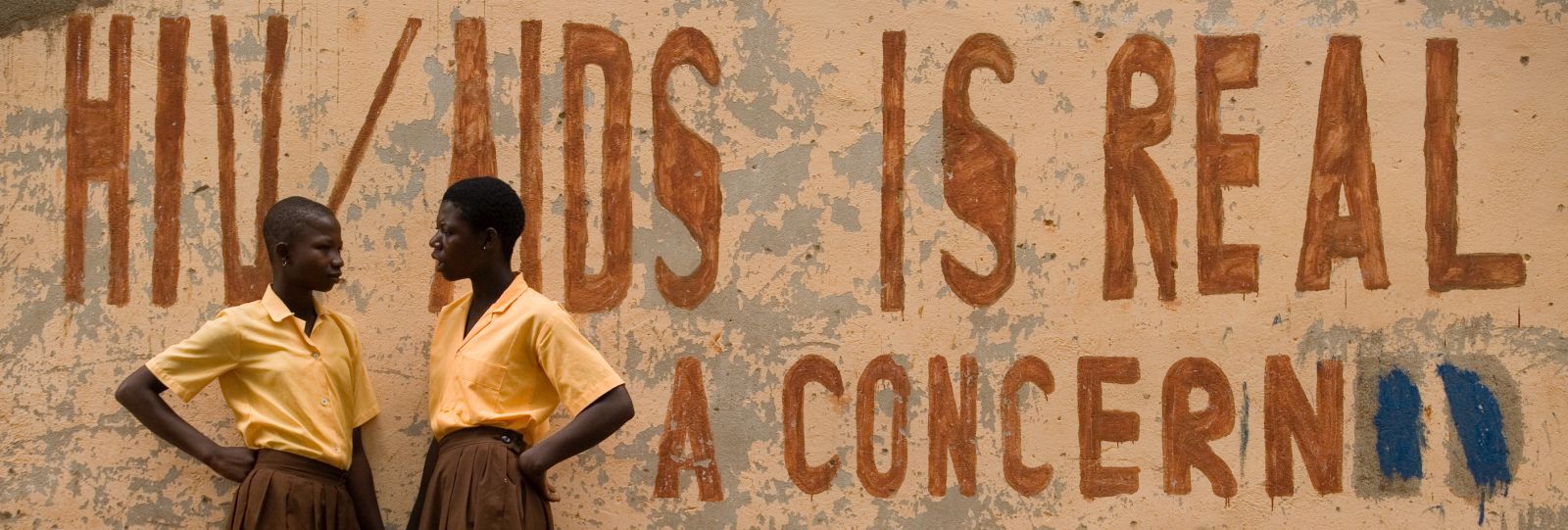
Responding to the HIV/AIDS epidemic was a major high point of ECOSOC when UNAIDS was created through an ECOSOC sponsored resolution in 1994 (Resolution 1994/24). UNAIDS is the organization, which leads the global effort to end AIDS as a public health threat by 2030 as part of the Sustainable Development Goals.
ECOSOC in Action Today
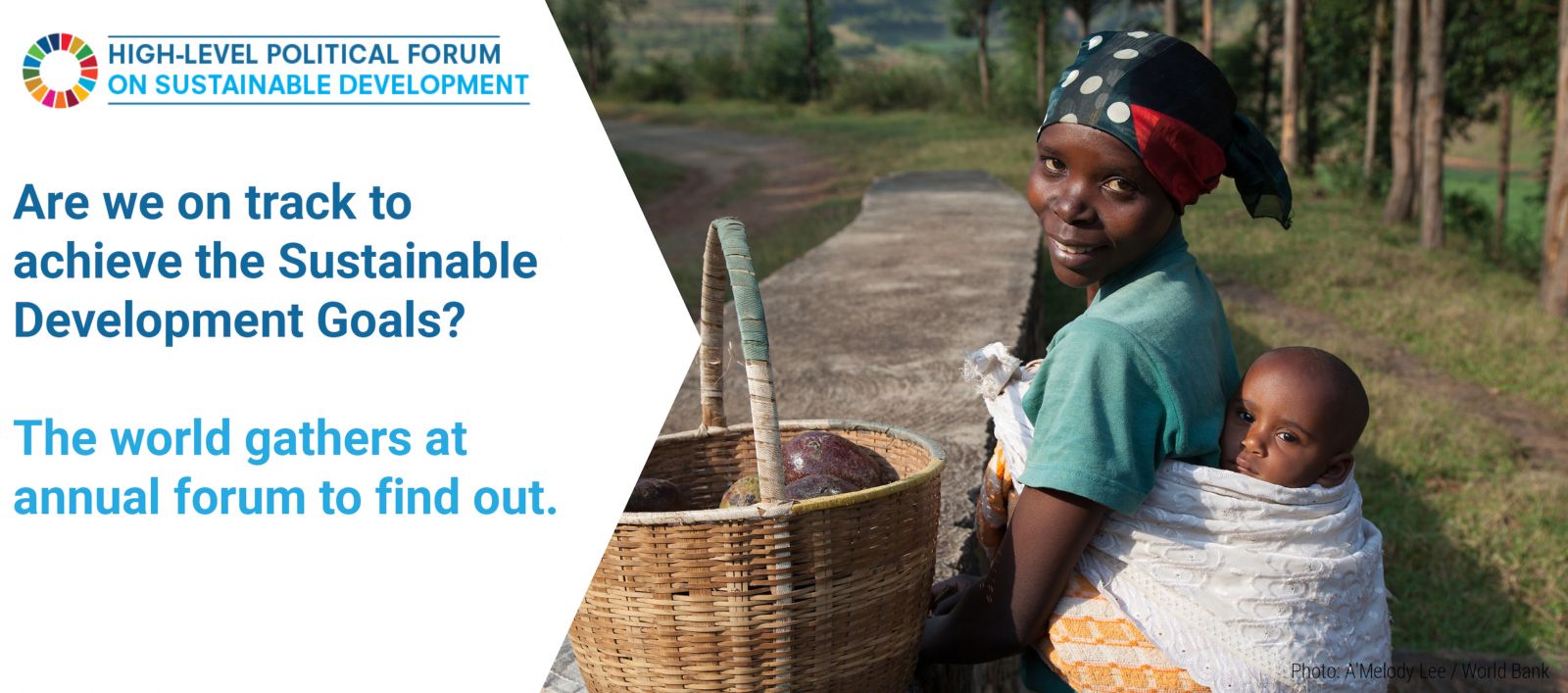
The Council has become the principal body in pursuit of the 2030 Agenda for Sustainable Development. The 2030 Agenda comprises 17 Sustainable Development Goals (SDGs), which cover the very issues that ECOSOC was set up to accomplish. The High-level Political Forum (HLPF), created in 2012 by the outcome document of the United Nations Conference on Sustainable Development (Rio+20), "The Future We Want". (General Assembly resolution 67/290) meets annually under the auspices of ECOSOC. The HLPF is the United Nations platform for the global follow-up and review of the implementation of the 2030 Agenda for Sustainable Development.
ECOSOC guides and coordinates the work of the United Nations System at the country level. At its operational activities for development segment, it oversees the implementation by the UN development system of the policies developed by the General Assembly.
The Council addresses the work of the UN system and its functional commissions on its theme at the integration segment, based on which it will develop guidance on the implementation of the 2030 Agenda for Sustainable Development. ECOSOC also works to strengthen the coordination of humanitarian assistance and make it more effective. Its humanitarian affairs segment aims to improve and coordinate the UN system’s humanitarian response in the broader context of international efforts to address disasters and other humanitarian emergencies.
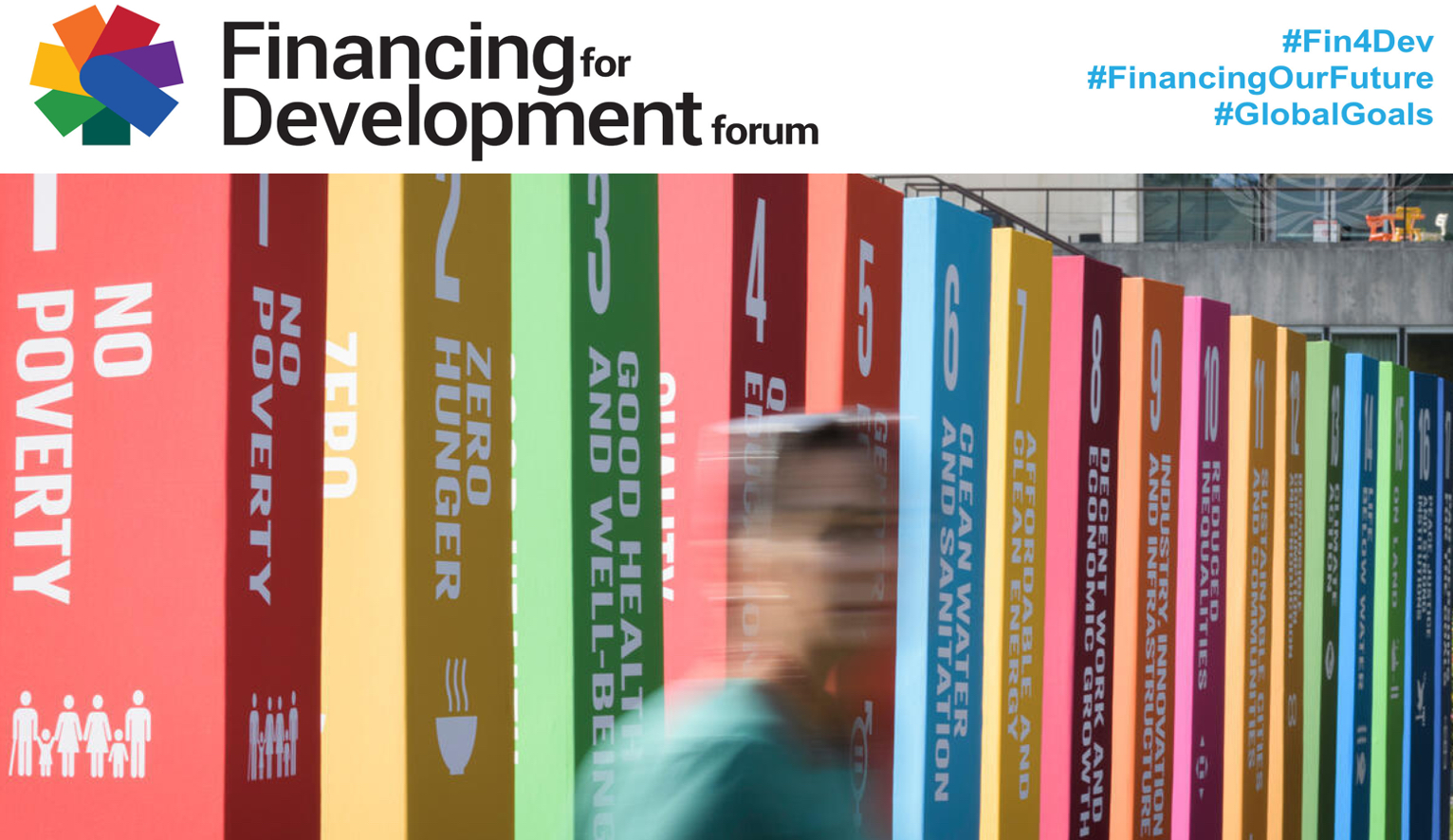
The ECOSOC Forum on Financing for Development follow-up is at the center of the dedicated follow-up process on Financing for Development established by the Addis Ababa Action Agenda in 2015. The Forum is the only intergovernmental forum on Financing for Development with universal participation that leads to an annual negotiated outcome. Over the years, the Forum has acted as a platform for consensus-building and meaning exchanges among all key stakeholders to address the challenge of financing and creating an enabling environment at all levels for sustainable development.
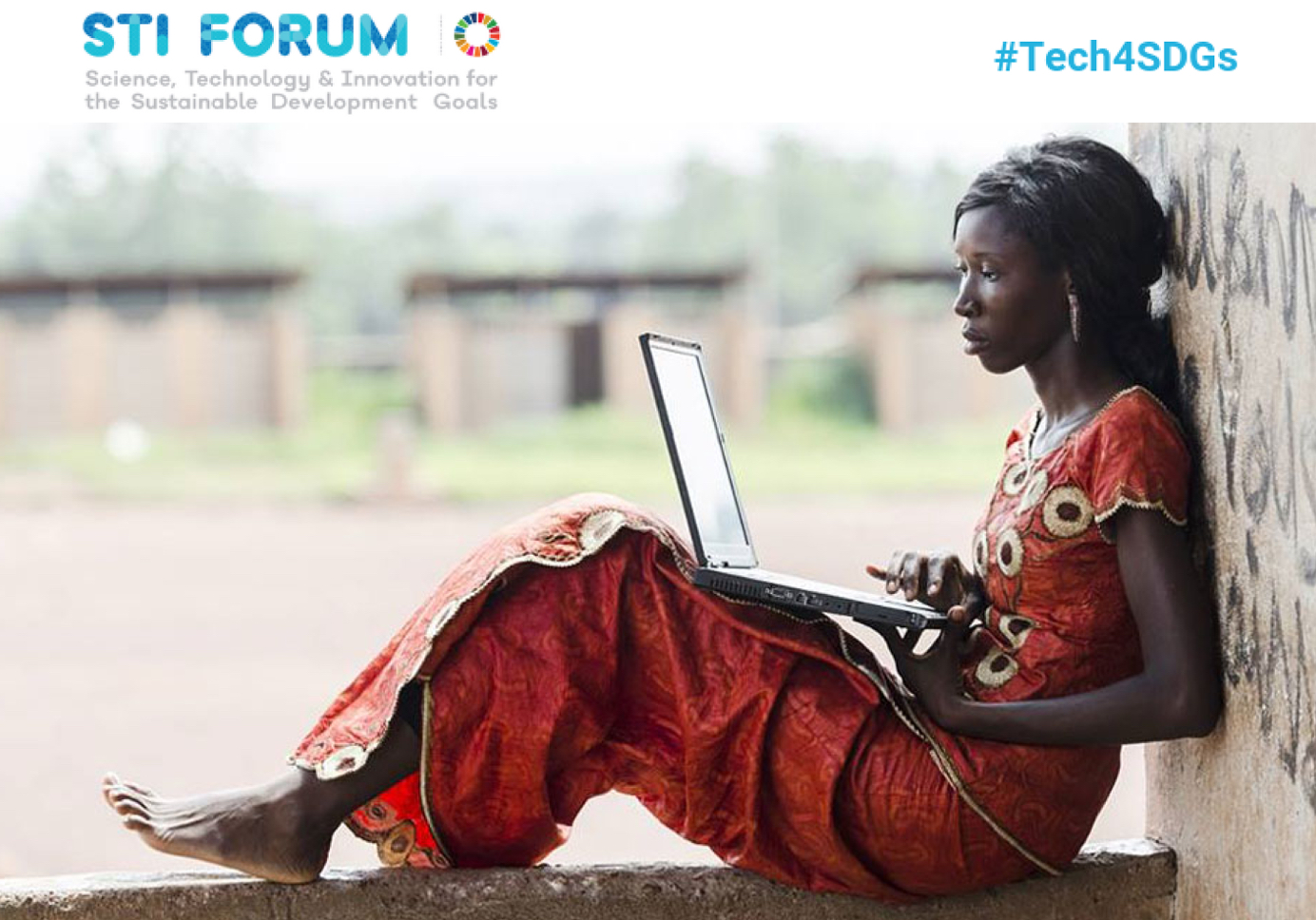
The Multi-stakeholder Forum on Science, Technology and Innovation for the SDGs brings a variety of actors together to discuss cooperation on science, technology and innovation for implementing the SDGs. In the General Assembly resolution on the 2030 Agenda for Sustainable Development (A/RES/70/1), it is stipulated that the President of ECOSOC will convene the meetings of the STI forum once a year to discuss science, technology and innovation cooperation around thematic areas for the implementation of the Sustainable Development Goals.

Through special meetings, ECOSOC promotes awareness of global emergencies, including public health, natural disasters, and other crises. The Council promoted a coordinated response by the UN system with the engagement of all stakeholders following the Tsunami in Indonesia in 1994, the global food crises in 2008/9, the earthquake in Haiti in 2010, Ebola in 2014, the Zika Virus in 2016, the Aftermath of hurricanes in 2017 and Pathways to resilience in climate-affected SIDS in 2018“, Cyclone Idai in 2019 and the COVID-19 pandemic in 2020.

H.E. Mr. Marc Blanchard, former Permanent Representative of Canada to the UN and former Chair of the ECOSOC Ad Hoc Advisory Group (AHAG) on Haiti speaks with students of the St. Esprit National Education Centre in Haiti, during a visit of the AHAG to the country. (UN Photo)
ECOSOC has helped countries move from situations of conflict to peace by launching Ad Hoc Advisory Groups on African Countries Emerging from Conflict which later gave rise to the Peacebuilding Commission in 2006. The Council currently provides advice to Haiti on a long-term development strategy to promote socio-economic recovery and stability through the ECOSOC Ad Hoc Advisory Group on Haiti.

In 2012, ECOSOC, gave the youth of the world a seat at the United Nations. As the main platform for youth to share their ideas at the global level, the ECOSOC Youth Forum will commemorate its 10th Anniversary on 7-8 April 2021. The Youth Forum brings young people to dialogue with Member States, and to explore ways and means of promoting youth development and engagement. In that context, young people are bringing issues of concern and challenges they face in their countries to the world stage.
 Bienvenidos a las Naciones Unidas
Bienvenidos a las Naciones Unidas